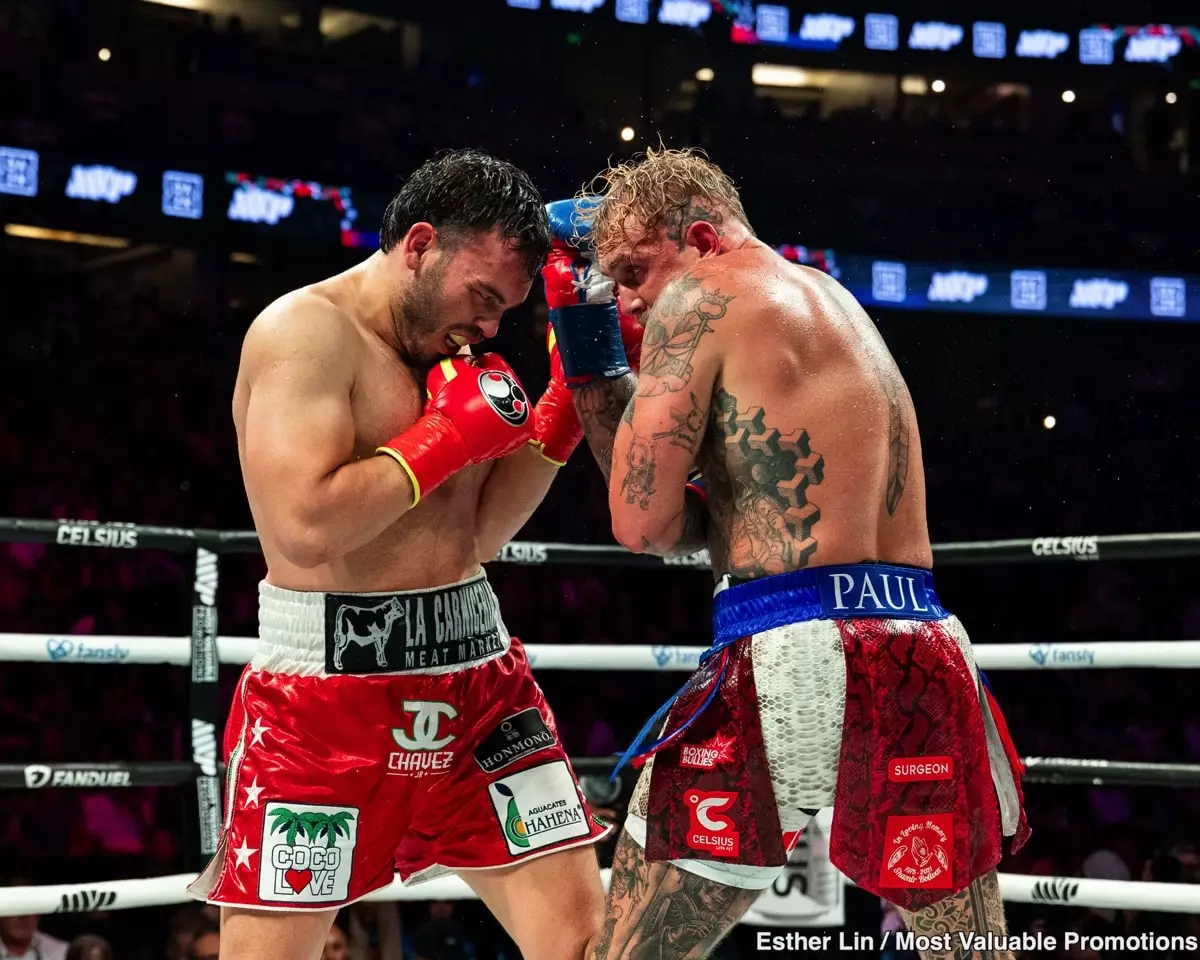In recent years, the boxing world has been overtaken by an unprecedented phenomenon that has, paradoxically, attracted millions of viewers while eroding the sport’s core values. This phenomenon is epitomized by Jake Paul, the YouTube celebrity turned boxer, whose string of highly publicized fights have been branded “circuses” by seasoned professionals. Vergil Ortiz, a respected welterweight contender known for his deadly knockout power, bluntly accused Paul of not only hoodwinking entire audiences but also actively sabotaging the sport’s integrity. Ortiz’s fiery critique exposes a troubling truth: boxing today is being overshadowed by spectacle masquerading as sport, carried by an uncritical digital fanbase hungry for entertainment but starved of authenticity.
It’s important here to dissect what makes this spectacle so insidious. Unlike true contenders who endure grueling training, blood, sweat, and genuine competition, Paul’s fights are carefully crafted products built on viral moments and pre-selected opponents with waning prowess rather than merit. The “big fights” hype machine spins around recycled narratives—exponents of fading MMA careers, former boxers past their prime, or other celebrities lured into the ring—all carefully chosen for their marketability rather than their ability to challenge a worthy talent. This formula churns out predictable, low-skill bouts that masquerade as meaningful contests, raising a question that real fans have long pondered: is this boxing, or just a show?
The Enabling Audience and Industry Complicity
What fuels Paul’s rise is not just savvy marketing but the complicity of billions of dollars from fans and powerful stakeholders eager to capitalize on his social media reach. Unlike traditional boxing events where legitimacy is earned in the ring, Paul leverages followers in the millions—mostly young, impressionable social media users—to sell pay-per-views that eclipse many real bouts. Promoters and broadcasters, often criticized for prioritizing ratings over the sport’s dignity, have bent over backwards to monetize this “influencer boxing” fad. This is an uncomfortable truth: audience metrics trump athletic merit, rewarding spectacle and trash talk over raw skill and relentless discipline.
From the corners of underground gyms to the grand stages of world championships, fighters pour their lives into refining technique and strategy. These fighters, often scraping by on modest purses and enduring physical and mental tolls, are eclipsed by a circus that caters to ad-driven platforms hungry for clickbait. Ortiz’s critique isn’t bitterness from a frustrated boxer; it’s a keen observation of a marketplace distorted by digital media’s insatiable appetite for ephemeral fame. The irony lies in the so-called superfans of Paul, who deride genuine critics as “haters” but fail to comprehend or appreciate the art and rigor of real boxing. They repeatedly purchase the same fabricated narratives, hopeful that this time, the spectacle will transform into a legitimate fight. It never does.
The Manufactured Controversies and Questionable Matchups
The dubious nature of Paul’s fights extends beyond mere lack of quality into allegations of rigged performances or questionable effort in the ring. The fight against Julio Cesar Chavez Jr. is a prime example. Chavez, himself a former star with a tarnished reputation for “folding” under pressure, appeared uncharacteristically passive, sparking speculation about whether the bout was rigged or if Chavez simply mailed it in for payday convenience. While neither can be definitively proven, the mere suggestion highlights how these spectacle fights compromise competitive integrity, casting further shadows over their legitimacy.
This scenario is emblematic of a larger problem: fighters are selected not for competitive balance but for their ability to fit a narrative; challengers with little to no capacity to threaten Paul’s scripted dominance. The result is fights that lack suspense, authenticity, or credible athletic display. And yet, the digital mobs cheer and share, their clips and highlight reels spreading like wildfire, creating the illusion of significance. This volatility threatens to reduce boxing into a mere spectacle, eroding public trust and starving aspirant fighters of deserved spotlight and financial reward.
Culture Clash: Real Boxing vs. Influencer Spectacle
The current debacle reflects a broader culture clash between two worlds: the hard-nosed, sweat-soaked tradition of professional boxing and the attention-driven, meme-fueled modern internet culture. Traditional boxing thrives on legacy, discipline, pain, and ritual; it’s a lifelong pursuit of excellence forged through countless sacrifices. Influencer boxing, in contrast, is pseudo-athletic theater designed for instant gratification and viral moments. Ortiz’s candid words remind us where the real value lies—the raw toughness, the unfiltered stakes, and the measurable histories of fighters who grind day in and day out far from the cameras.
The danger is not just dilution but erasure. If the sport’s audience continues to embrace hollow spectacles while ignoring authentic athletic stories, boxing’s heritage risks being trivialized into ephemeral meme fodder. Yet Ortiz’s harsh criticism also suggests that the fault lies heavily with the consumers of these spectacles: demanding authenticity yet willingly indulging in the manufactured drama. The plight is not simply one of fighters or promoters but of a culture that prioritizes convenience and entertainment over truth and effort.
In this environment, real fighters—the ones who bear scars and sacrifice—are sidelined while the circus keeps drawing bigger crowds and bigger paydays. Sadly, the cycle perpetuates itself until the illusion inevitably shatters. Until then, audiences will oscillate between disappointment and hope, caught in an exhausting loop of subscribing to the dream of legitimacy in a game rigged for showmanship, not sport. The truth spoken by Ortiz challenges fans and insiders alike: if you want real boxing, stop feeding this charade.

